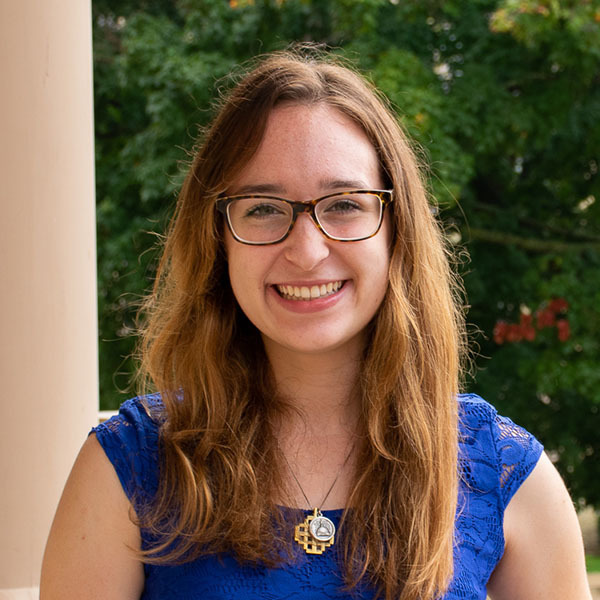
I’d like to think of myself as an “OG” fan of Nikole Hannah-Jones (‘98).
My introduction to her work was in the realm of education journalism. While in high school, I read her article, “Choosing a School for my Daughter in a Segregated City,” and it is an absolutely phenomenal piece. The article showcases Hannah-Jones’ honesty, her unparalleled ability to connect history to present-day realities, and a thought-provoking discussion of how micro-level decisions can affect greater systems of injustice - how ideology and practice intertwine. While at Notre Dame, I was introduced to her podcast “The Problem We All Live With” for This American Life, an INCREDIBLE look at school desegregation. It’s been assigned content in two of my sociology classes - that’s how powerful it is!
More recently, however, Hannah-Jones has become known for her groundbreaking 1619 Project, a collection of essays, photographs, poetry, podcasts, and more that discuss the legacy of slavery in the United States. Named after the year that the first slaves came to the United States, the project not only discusses history - it connects slavery to present-day institutions.
As part of the Klau Center’s webinar series, “Building an Anti-Racist Vocabulary,” Hannah-Jones spoke to participating Notre Dame students, faculty, and staff about the 1619 Project’s goals and how it came to be.
“Nothing about our country has been left untouched by the legacy of slavery, even though we don’t know it,” Hannah-Jones said during the webinar. In 2019, which was the 400-year anniversary of the beginning of slavery in the United States, Hannah-Jones knew she had an opportunity to illuminate this legacy for a wider audience. Working at The New York Times, what Hannah-Jones described as “one of biggest megaphones in the world,” she pitched the idea to a receptive group of editors, and the 1619 Project was put together in an ambitious six-and-a-half months.
Hannah-Jones was extremely honest about how emotional and grueling the project was, especially with such a quick timeline, but she knew the potential the project had to change the conversation around American history, memory, and values. Even at an early age, Hannah-Jones recognized the importance of telling her own stories and the stories of Black people in this country. “With journalism you don’t just excavate the past, you actually have the ability to transform the present,” she said.
Her essay, “America Wasn’t a Democracy, Until Black Americans Made It One,” for which she won a Pulitzer prize, does both of those things. The essay recognizes the contributions of Black people to the United States and addresses the dominant historical narratives that have depicted Black people as a “problem” to the nation. Hannah-Jones posits the opposite, writing, “More than any other group in this country’s history, we have served, generation after generation, in an overlooked but vital role: It is we who have been the perfecters of this democracy.”
Although lofty ideals were present at the writing of the Declaration, Hannah-Jones shows how Black resistance has pushed the nation to uphold these ideas in practice.
Even today, we can see Hannah-Jones’ quote in action: this summer’s protests have demanded that our country uphold its ideals. After the deaths of Ahmaud Arbery, Breonna Taylor, and George Floyd, in addition to the recent shooting of Jacob Blake, protestors and activists have continued to advocate for true equality. Even Notre Dame students’ own Strike for Black Lives shows the need for justice in all spaces. Students of color, particularly Black and Brown students, are demanding to be truly heard and fully included in the Notre Dame family.
When Hannah-Jones attended Notre Dame, the Notre Dame family and support network was not there for her. In her first year, she struggled with depression and felt out of place as a Black woman in a predominantly white space of higher education. During the webinar, she noted that if someone had just asked her why she was struggling, if someone had just been willing to listen - things might have been different. Even actions this simple can help us start to build a better, more inclusive Notre Dame community. And I know that the Notre Dame community can only improve as Hannah-Jones joins our Gallivan Journalism Program in the spring.
What is so inspiring about Nikole Hannah-Jones is that she uses her gifts as a historian and as a storyteller to be an activist. By telling the stories that never get told, she is able to actively inspire change and fight for social justice - not because she has any illusions about a perfect society in the near future, but because someone needs to carry on the fight for racial justice and true equality, because it is simply the right thing to do.
Note: Nikole Hannah-Jones’ webinar was part of an ongoing series with the Klau Center for Civil and Human Rights, “Building an Anti-Racist Vocabulary,” that occurs ever Friday of the semester at 12:45pm. Every speaker of the series is asked to give recommended resources for future study. Hannah-Jones recommended:
The Warmth of Other Suns, book by Isabel Wilkerson
“Fear of a Black President,” essay by Ta-Nehisi Coates
O.J.: Made in America, produced and directed by Ezra Edelman
“Nice White Parents,” podcast series by Chana Joffe-Walt